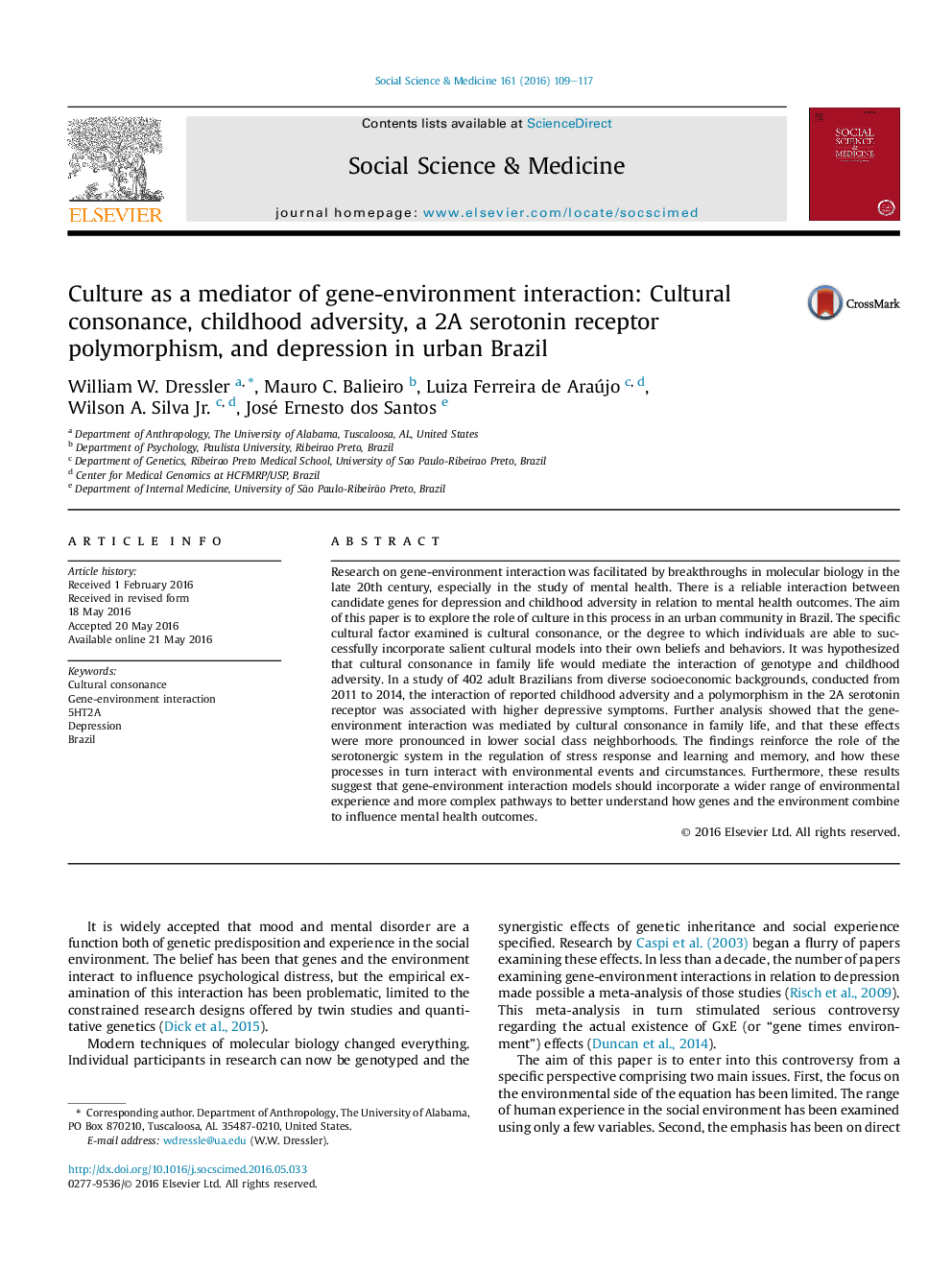| Article ID | Journal | Published Year | Pages | File Type |
|---|---|---|---|---|
| 7329859 | Social Science & Medicine | 2016 | 9 Pages |
Abstract
Research on gene-environment interaction was facilitated by breakthroughs in molecular biology in the late 20th century, especially in the study of mental health. There is a reliable interaction between candidate genes for depression and childhood adversity in relation to mental health outcomes. The aim of this paper is to explore the role of culture in this process in an urban community in Brazil. The specific cultural factor examined is cultural consonance, or the degree to which individuals are able to successfully incorporate salient cultural models into their own beliefs and behaviors. It was hypothesized that cultural consonance in family life would mediate the interaction of genotype and childhood adversity. In a study of 402 adult Brazilians from diverse socioeconomic backgrounds, conducted from 2011 to 2014, the interaction of reported childhood adversity and a polymorphism in the 2A serotonin receptor was associated with higher depressive symptoms. Further analysis showed that the gene-environment interaction was mediated by cultural consonance in family life, and that these effects were more pronounced in lower social class neighborhoods. The findings reinforce the role of the serotonergic system in the regulation of stress response and learning and memory, and how these processes in turn interact with environmental events and circumstances. Furthermore, these results suggest that gene-environment interaction models should incorporate a wider range of environmental experience and more complex pathways to better understand how genes and the environment combine to influence mental health outcomes.
Related Topics
Health Sciences
Medicine and Dentistry
Public Health and Health Policy
Authors
William W. Dressler, Mauro C. Balieiro, Luiza Ferreira de Araújo, Wilson A. Jr., José Ernesto dos Santos,
